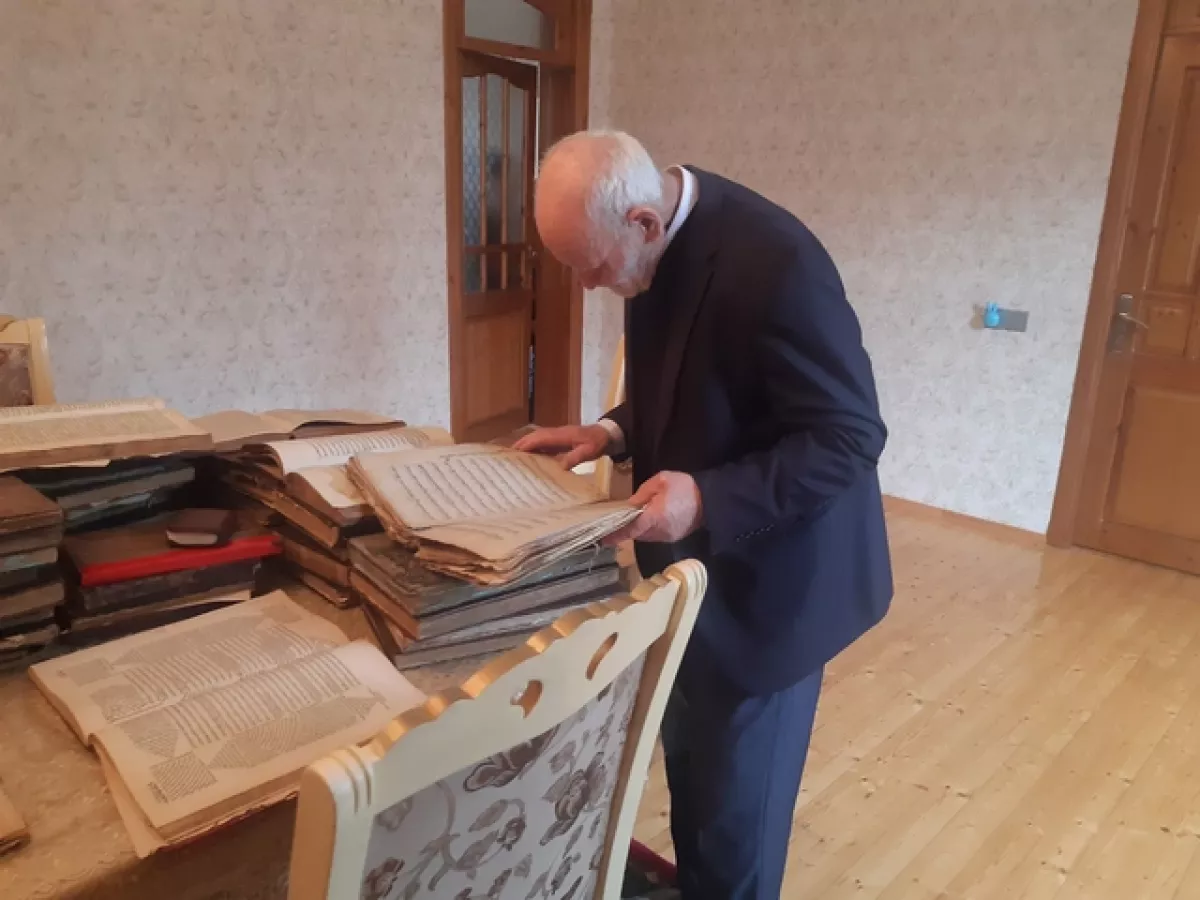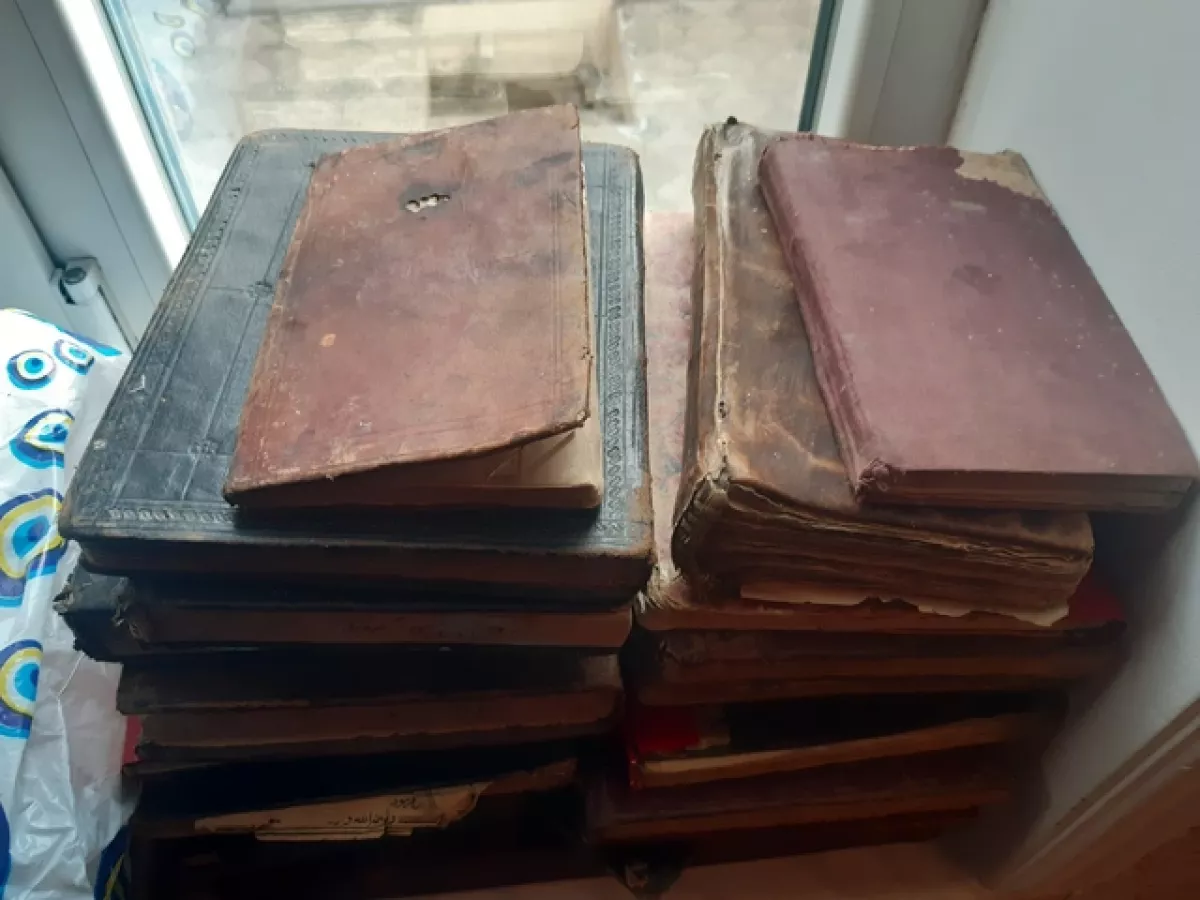Bilasuvar resident grants glance at centuries-old rare books rescued from Soviet-era destruction
A resident of Azerbaijan's Beydili in the south of the country is preserving more than 60 scientific books in his home that are believed to be nearly 500 years old.
They are being kept in the private residence of 87-year-old Kamal Mammadov in the Bilasuvar district.
As Mammadov told local reporters, he was born in 1937 in the Lerik region, which is situated in the far south of the country close to the state border with Iran. According to him, the books are a legacy from his grandfather, Mirza Jafar.
"My grandfather, Mirza Jafar, acquired the books during his education. Later, he began to actively promote education in his native village of Kalvach in Lerik. These books are nearly 500 years old. During the early years of the Soviet regime, many of them were burned and destroyed. To protect the remaining ones, they were hidden by being built into the walls of the house. In the 1950s, like many others living in border regions near Iran, our family was relocated from Kalvach in Lerik to the Bilasuvar district. But we did not forget to take these books with us as valuable possessions. I have been protecting them like the apple of my eye for nearly 80 years," Mammadov told the journalist.
The academic books cover a variety of topics, including medicine, astronomy, physics, geometry, and other sciences. He did not disclose whether he planned to transfer the valuable belongings with a museum or continue safeguarding them as part of his private collection.
According to the Russian State Library's archives, book burnings were a method commonly applied by the Soviet Union's administrative branches to limit the spread of information of information deemed to be "dangerous" to the bloc's ideological values. Primarily texts portraying dissenting voices, promoting democratic values or Western influence were censored or eliminated but many books that did not contain such contents fell victim to these measures, which resulted in the destruction of countless historic and cultural texts like those safeguarded by Mammadov's family.
By Nazrin Sadigova










